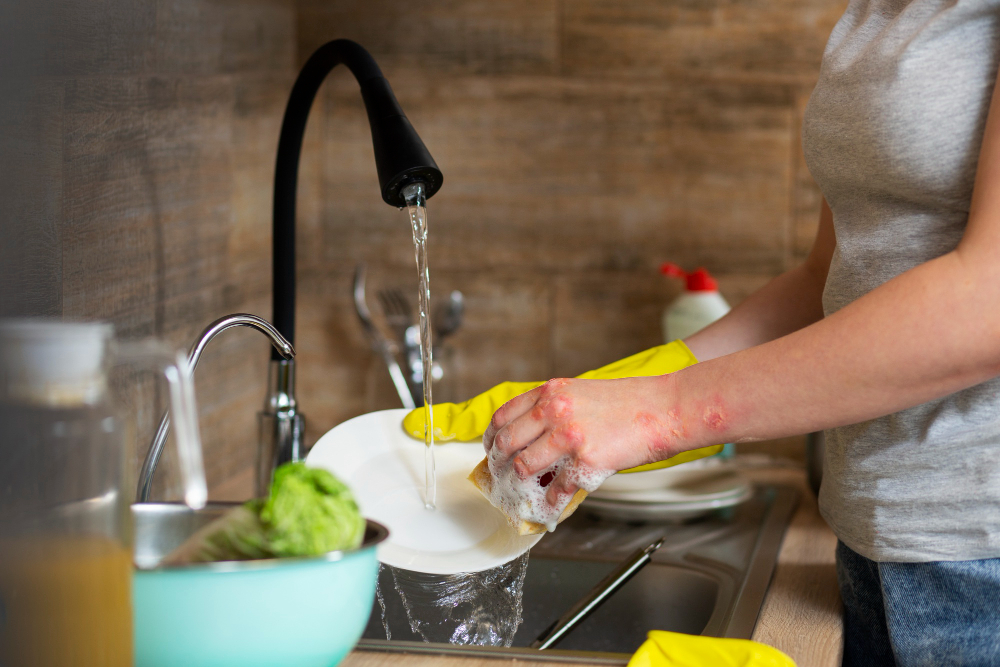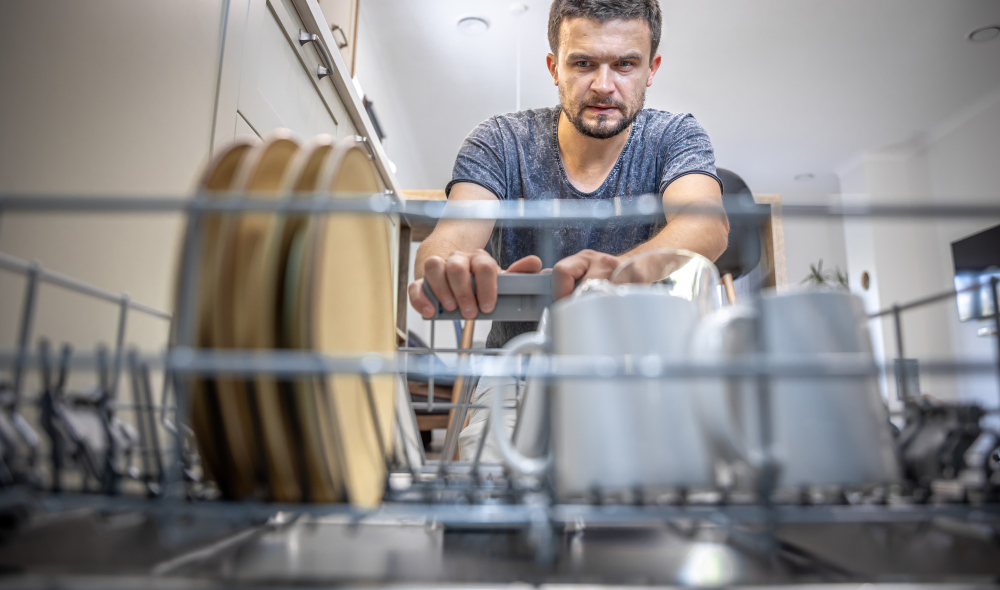Why Is My Dishwasher Not Cleaning Properly
You’re frustrated. You’ve loaded up your dishwasher, run a cycle, but your dishes aren’t clean. What’s going wrong? Is it you, your dishwasher, or something else?
In this article, we’ll explore common dishwasher troubles and their solutions. You’ll learn about proper dishwasher use and maintenance, so you’ll never have to question, ‘Why is my dishwasher not cleaning properly?’ again.
Let’s get started.
Understanding Your Dishwasher’s Mechanism
Before you can troubleshoot why your dishwasher isn’t cleaning properly, it’s crucial that you understand how it’s supposed to work. This involves not just the mechanical aspects, but also the role of correct detergent selection and rinse aid usage.

You’re not alone if you’ve just slapped any old detergent into your dishwasher. However, your choice of detergent can make a substantial difference in how well your dishes come out.
Rinse aid usage is another factor that’s often overlooked. Rinse aids work by reducing the surface tension of water, allowing it to slide off dishes more easily. This helps to prevent spots and film, enhancing the overall cleaning.
Understanding these factors will put you in a better position to diagnose and fix your dishwasher problems.
Common Dishwasher Problems
Now that you’ve got a handle on how your dishwasher should work, let’s dive into some common problems you might encounter when it’s not cleaning properly. A key part of this is the faulty components discussion. If parts like the spray arm, filter, or heating element are damaged or clogged, your dishwasher’s performance will be affected. The detergent dispenser may also malfunction, resulting in poorly cleaned dishes.
Next, let’s touch on detergent quality evaluation. Not all detergents are created equal. Some are too mild to thoroughly clean your dishes, while others might be too harsh and cause damage. It’s crucial to find a balance. Invest in a high-quality detergent that’s appropriate for your specific dishwasher and the hardness of your water.
Dishwasher Loading Mistakes
Your dishwasher’s performance can also be hindered by the way you’re loading it, leading to dishes that aren’t properly cleaned. Overloading consequences are serious; cramming dishes in restricts water flow and detergent reach. It’s vital to give each item enough space to ensure thorough cleaning.
Your detergent selection also plays a part. If you’re using a low-quality detergent, it may not effectively clean your dishes, regardless of how well you’ve loaded the dishwasher. Opt for a high-quality, robust detergent that can tackle food residues and stains.
Improper Dishwasher Maintenance
A significant number of cleaning issues you’re experiencing with your dishwasher might be due to improper or infrequent maintenance. Over time, food particles can clog your dishwasher’s filter, leading to less efficient cleaning and even damage. Regular filter replacement is crucial to keep your machine running smoothly. If you’re not doing this, you’re likely compromising your dishwasher’s performance.
Your detergent choice also plays a significant role. Not all detergents are created equal, and the wrong choice could leave your dishes less clean than they should be. Experiment with different brands and types to find the one that works best with your water hardness and dishwasher model.

Good maintenance and the right detergent can make all the difference in your dishwasher’s performance.
Solutions for Dishwasher Issues
Despite dealing with the frustration of a poorly performing dishwasher, you can take proactive steps to remedy the situation. Start by re-evaluating your detergent selection. It’s not about using more detergent, but rather using the right one. Some detergents are better suited for hard water, while others are designed for softer water. So, make sure your detergent matches your water type.
Next, check your water temperature. The optimal temperature for most dishwashers is around 120°F. If it’s too low, your dishwasher might struggle to clean properly. You can easily adjust the temperature on your water heater.
Frequently Asked Questions
What Type of Detergent Is Best for My Dishwasher?
You’re asking about the best detergent for your dishwasher. Both dishwasher tablets and liquid detergents are good options. However, tablets often outperform liquids. Consider detergent alternatives, like homemade mixes, for more eco-friendly cleaning.
Could Hard Water Be Affecting My Dishwasher’s Cleaning Efficiency?
Yes, hard water can indeed affect your dishwasher’s efficiency. Mineral buildup effects can clog the jets, reducing performance. Using water softening solutions can help counteract this issue, improving your dishwasher’s cleaning capability.
Are There Any Natural Methods to Clean My Dishwasher?
Yes, there are natural methods to clean your dishwasher. Use vinegar for deep cleaning and baking soda for deodorizing. Just pour vinegar in the bottom, run a cycle, then sprinkle baking soda and run again.
Is It More Energy Efficient to Wash Dishes by Hand or Use a Dishwasher?
You’re weighing up dishwasher maintenance and energy consumption, huh? Generally, a well-maintained dishwasher is more energy-efficient than hand-washing. It uses less water and energy, so it’s kinder to both your wallet and the environment.

How Often Should I Replace My Dishwasher to Ensure It Functions Properly?
You don’t necessarily need to replace your dishwasher frequently. Regular dishwasher maintenance and understanding lifespan factors like brand and usage can keep it running efficiently for up to 10-15 years.
Conclusion
In conclusion, your dishwasher’s performance depends on its mechanism, loading, and maintenance. If it’s not cleaning properly, it’s likely due to common problems, loading mistakes, or improper care.
But don’t worry, there are solutions! Understanding these aspects helps you troubleshoot and fix the issues. Now that you know, you’re well-equipped to keep your dishwasher running smoothly.
Remember, a well-maintained dishwasher means cleaner dishes and less hassle for you.
